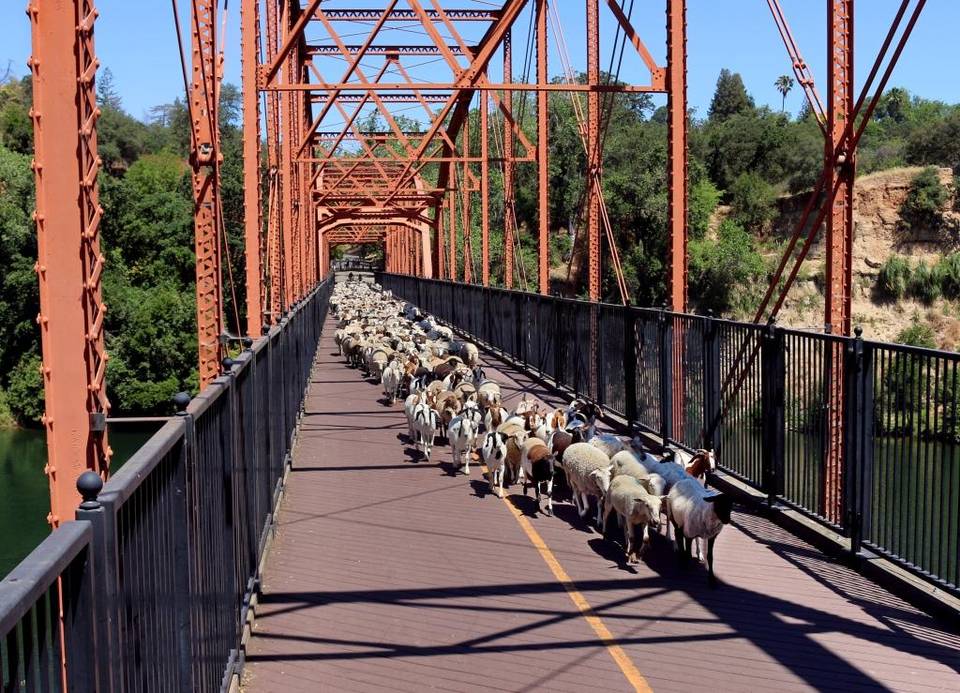
With every chomp of leaves, grass and shrubbery, livestock serve a key role in fire prevention this summer along the American River Parkway by consuming hazardous, natural fuels.
Since 2014, Sacramento County Regional Parks has deployed animals along the lower areas of the parkway closer to Sacramento. But goats and sheep this year are also spending time grazing the upper areas of the parkway, including a herd of 900 sheep and goats near the Fair Oaks Bridge on Wednesday, according to Steve Gregory of Lincoln-based Gregory Livestock Co.
“Anytime you have a lot of fuels and the fire can climb up the ladder (to the canopy) right behind houses, it’s definitely key to remove them,” Gregory explained.
Sacramento County spokeswoman Kim Nava said about 175 acres in all will be grazed by Gregory’s herd this summer. Animals began grazing at Discovery Park at the beginning of June and will move along the American River until the end of July, covering about 2 acres a day, Gregory said.
As Sacramento sees triple-digit heat, Gregory said he is mindful about keeping the livestock hydrated. A water truck is driven to the herd several times a day.
In Roseville, the Parks and Recreation Department also relies on goats to reduce fuels in Roseville and manages an online map showing the herd’s location and progress.
Dale Shippelhoute, forestry technician for the Sacramento regional office of the U.S. Fish and Wildlife Service, said livestock are a better option than prescribed fire, or controlled burn sites. Shippelhoute said his agency’s fire management department has often used goats.
“Goats are generally accepted within a community because they are a novel animal to watch as they work and they are not on site long enough to be a hindrance to neighbors,” Shippelhoute said in an email. “They don’t require permanent fencing to be installed.
“In contrast, prescribed burning may cost $40 to $100 per acre,” Shippelhoute added. “In some locations, prescribed fire would cause too much damage to the desired vegetation. Mature sycamore and cottonwood can be killed with light to moderate intensity fire and would take many years to replace.”
Jessica Hice: 916-321-1550, @JesserPea